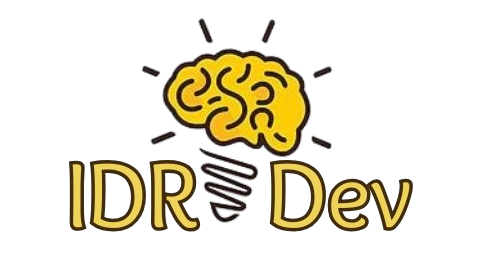Flask vs Django: Reddit’s Take on Python Frameworks
Choosing the right Python web framework can be daunting, especially with popular options like Flask and Django. Reddit, a vast online community, offers a treasure trove of discussions and opinions on the nuances of each framework. This article delves into the Flask vs. Django debate as seen through the lens of Reddit, providing insights into their strengths, weaknesses, and suitability for various projects. We’ll explore real-world examples and provide actionable steps to help you make an informed decision for your next web development endeavor.
Background: Two Approaches to Web Development

Flask and Django represent different philosophies in web framework design. Understanding their core principles is crucial before diving into Reddit’s perspectives.
Flask: The Microframework
Flask is a microframework, meaning it provides the essential tools for web development without imposing strict architectural patterns. It emphasizes simplicity, flexibility, and fine-grained control. Key features of Flask include:
- Minimalistic Core: Flask offers basic routing, request handling, and templating functionalities.
- Extensibility: It’s designed to be extended with various libraries and tools based on project needs.
- WSGI Compliance: Flask adheres to the WSGI (Web Server Gateway Interface) standard, ensuring compatibility with different web servers.
- Lightweight: Due to its minimalistic nature, Flask is relatively lightweight and easy to learn.
Django: The Full-Featured Framework
Django is a high-level, full-stack framework that promotes rapid development and a clean, pragmatic design. It provides a comprehensive set of features out of the box, following the “batteries-included” philosophy. Notable Django features include:
- ORM (Object-Relational Mapper): Django’s ORM simplifies database interactions by allowing developers to work with Python objects instead of raw SQL queries.
- Template Engine: A powerful template engine facilitates dynamic HTML generation.
- Admin Interface: Django automatically generates an admin interface for managing application data.
- Security Features: Built-in protection against common web vulnerabilities like Cross-Site Scripting (XSS) and SQL injection.
- Scalability: Django is designed for scalability and can handle high traffic loads.
Importance: Choosing the Right Tool for the Job

Selecting the appropriate framework significantly impacts development speed, maintainability, and the overall success of a project. A mismatch can lead to unnecessary complexity, performance bottlenecks, and increased development costs. Therefore, a thorough understanding of Flask and Django’s strengths and weaknesses is essential.
Factors to Consider
Several factors influence the choice between Flask and Django:
- Project Size and Complexity: For small to medium-sized projects with specific requirements, Flask’s flexibility might be preferable. For large, complex applications with extensive features, Django’s comprehensive framework can be more efficient.
- Development Speed: Django’s “batteries-included” approach accelerates development for projects that align with its conventions. Flask requires more initial setup but offers greater customization.
- Scalability Requirements: Django is well-suited for scalable applications due to its built-in features and architectural patterns. Flask can also be scaled, but it requires more manual configuration.
- Team Expertise: The team’s familiarity with each framework is a crucial factor. Choosing a framework that the team is proficient in reduces the learning curve and improves productivity.
- Community Support: Both Flask and Django have large and active communities, providing ample resources and support.
Benefits: Weighing the Advantages of Each Framework

Flask’s Advantages
- Flexibility and Control: Flask allows developers to make granular decisions about every aspect of the application, offering unparalleled control.
- Simplicity and Learning Curve: Its minimalistic nature makes Flask relatively easy to learn, especially for developers familiar with Python.
- Microservices Architecture: Flask is well-suited for building microservices due to its lightweight nature and flexibility.
- Integration with Other Libraries: Flask seamlessly integrates with various Python libraries and tools, enabling developers to build custom solutions.
Django’s Advantages
- Rapid Development: Django’s built-in features and conventions enable rapid development, especially for projects that follow its architectural patterns.
- Security: Django provides robust security features out of the box, protecting against common web vulnerabilities.
- Scalability: Django is designed for scalability and can handle high traffic loads with proper configuration.
- Large Community and Ecosystem: Django boasts a vast community and a rich ecosystem of third-party packages and tools.
- ORM (Object-Relational Mapper): Simplifies database interactions and improves code maintainability.
- Admin Interface: Automatically generated admin interface streamlines data management.
Reddit’s Perspective: Flask vs. Django Discussions

Reddit is a valuable resource for gaining insights into real-world experiences with Flask and Django. A search for “Flask vs Django” reveals numerous discussions where developers share their opinions, use cases, and recommendations.
Common Themes and Arguments
Several recurring themes emerge from Reddit’s Flask vs. Django discussions:
- Beginner-Friendliness: Some Reddit users suggest that Flask is easier to learn for beginners due to its simplicity, while others argue that Django’s comprehensive documentation and tutorials make it equally accessible.
- Project Complexity: Many Reddit users agree that Flask is a good choice for smaller projects, APIs, and microservices, while Django is better suited for larger, more complex applications with a database and user management.
- Customization vs. Convention: Reddit users often debate the trade-offs between Flask’s flexibility and Django’s conventions. Flask allows for more customization, while Django enforces a specific structure.
- Performance: Some Reddit users report that Flask can be faster for certain tasks due to its lightweight nature, while others argue that Django’s performance can be optimized through caching and other techniques.
- Specific Use Cases: Reddit discussions often highlight specific use cases for each framework. For example, Flask is frequently recommended for building REST APIs, while Django is often recommended for building e-commerce websites or content management systems.
Examples from Reddit Threads
Here are some paraphrased examples from Reddit threads illustrating different perspectives:
- “I started with Flask because it seemed less overwhelming. Now I’m comfortable with the basics and I’m thinking of learning Django for a bigger project.” (Beginner transitioning from Flask to Django)
- “Flask is perfect for building a simple API. Django feels like overkill for that.” (Flask for API development)
- “Django’s ORM saved me so much time and effort. I wouldn’t want to write raw SQL queries for a complex database.” (Django’s ORM advantage)
- “I love Flask’s flexibility. I can choose the libraries and tools that best fit my needs.” (Flask’s customizability)
- “Django’s security features are a big plus. I don’t have to worry about implementing them myself.” (Django’s security benefits)
Examples: Real-World Applications

Flask Examples
- REST APIs: Flask is commonly used to build REST APIs for mobile apps, web applications, and other services. Example: Building a simple API to manage a to-do list.
- Microservices: Flask is well-suited for building microservices due to its lightweight nature and flexibility. Example: Creating a microservice to handle user authentication.
- Web Scraping: Flask can be used to create web scraping applications that extract data from websites. Example: Building a web scraper to collect product prices from e-commerce websites.
- Simple Web Applications: Flask can be used to create simple web applications with limited functionality. Example: Building a basic blog with user authentication.
Django Examples
- E-commerce Websites: Django is often used to build e-commerce websites with features like product catalogs, shopping carts, and payment gateways.
- Content Management Systems (CMS): Django is a popular choice for building CMS platforms that allow users to create and manage content.
- Social Networking Platforms: Django can be used to build social networking platforms with features like user profiles, friend connections, and news feeds.
- Data Analysis Dashboards: Django can be used to create interactive dashboards for visualizing and analyzing data.
- Complex Web Applications: Django excels at building complex web applications with numerous features and functionalities.
Strategies: Making the Right Choice

Choosing between Flask and Django requires a strategic approach that considers project requirements, team expertise, and long-term goals.
Assessment and Evaluation
- Define Project Scope: Clearly define the project’s scope, features, and requirements.
- Evaluate Team Skills: Assess the team’s expertise with Flask and Django.
- Consider Scalability: Evaluate the application’s scalability requirements.
- Analyze Security Needs: Determine the security requirements of the application.
- Compare Development Time: Estimate the development time for each framework.
- Review Reddit Discussions: Research Reddit discussions and other online resources for insights.
Prototyping and Experimentation
Building a small prototype with both Flask and Django can provide valuable insights into their respective strengths and weaknesses. This allows developers to experience the development process firsthand and make a more informed decision.
Challenges & Solutions: Addressing Potential Issues
Flask Challenges
- Lack of Structure: Flask’s flexibility can lead to inconsistent code and architectural issues if not properly managed.
Solution: Implement coding standards, follow design patterns, and use extensions to enforce structure.
- Manual Configuration: Flask requires more manual configuration than Django, which can be time-consuming.
Solution: Use configuration management tools and automate deployment processes.
- Security: Developers are responsible for implementing security features in Flask applications.
Solution: Use security libraries, follow security best practices, and conduct regular security audits.
Django Challenges
- Steep Learning Curve: Django’s comprehensive framework can be overwhelming for beginners.
Solution: Start with basic tutorials, practice with small projects, and gradually explore more advanced features.
- Convention Over Customization: Django’s conventions can limit customization options.
Solution: Understand Django’s architecture, use hooks and signals to customize behavior, and consider using third-party packages.
- Performance: Django’s ORM can be a performance bottleneck if not used properly.
Solution: Optimize database queries, use caching techniques, and consider using raw SQL queries for performance-critical operations.
FAQ: Common Questions and Answers
- Q: Is Flask better than Django?
- A: Neither is inherently “better.” The best choice depends on the specific project requirements, team expertise, and desired level of customization.
- Q: Which framework is easier to learn?
- A: Flask is generally considered easier to learn initially due to its minimalistic nature, but Django’s comprehensive documentation can also make it accessible to beginners.
- Q: Can Flask be used for large projects?
- A: Yes, Flask can be used for large projects, but it requires more careful planning and architecture to maintain scalability and maintainability.
- Q: Is Django more secure than Flask?
- A: Django provides more built-in security features, but security ultimately depends on the developer’s implementation. Flask applications can be made secure with proper coding practices and security libraries.
- Q: Which framework is better for APIs?
- A: Flask is often preferred for building APIs due to its flexibility and lightweight nature, but Django REST Framework provides a powerful toolkit for building REST APIs with Django.
Conclusion: Making an Informed Decision
The Flask vs. Django debate is ongoing, and the “best” framework is subjective. By considering the factors discussed in this article, exploring Reddit discussions, and experimenting with both frameworks, you can make an informed decision that aligns with your project’s needs and your team’s capabilities. Remember to prioritize clarity, maintainability, and scalability to ensure the long-term success of your web development project. Ready to start building? Explore the official documentation for both Flask and Django and dive into the vibrant Python web development community today!

